BACHELOR OF ARTS IN SOCIAL SCIENCES
PROGRAM DESCRIPTION
The Bachelor of Arts in Social Sciences (BASS) is currently offered as a ̳major-minor‘ curricular program where students choose a major from Economics, History, or Social Anthropology and a minor from Philosophy, Political Science, or Psychology. The major consists of 39 to 45 units while the minor consists of 24-27 units. Integral to the curriculum is a set of social science core courses totaling 19 units. These courses tackle approaches, perspectives, frameworks, and methodologies that are shared by the social science disciplines as well as those that distinguish them from one another. Specifically, the core courses are: a) Historical Context of the Social Sciences; b) Fundamental Statistics for the Social Sciences; c) Epistemological Issues in the Social Sciences; d) Ontology of the Social; e) Seminar on Social Science Methodology; and, f) Special Topics.
The BASS program was envisioned “to prepare students with a holistic understanding of social issues as they emerge in specific contexts of thought, norms and action, and with training in research, analysis and application as preparation for employment or further academic specialization”. The targeted jobs for this program were development work, project work, personnel management, policy, planning, and research.
EXPECTED LEARNING OUTCOMES
1. Develop critical thinking about society;
2. Discuss the general history, common and distinguishing concepts, perspectives and methods of the Social Sciences;
3. Explain social phenomena using social theory;
4. Conduct independent social research;
5. Demonstrate ethical Social Science practice; and
6. Commit to lifelong learning in their personal and professional lives.
MAJOR DISCIPLINES
ANTHROPOLOGY
Anthropology aims for holistic study of man and culture. It seeks to understand the complexity of human beings and societies–their variations, adaptive strategies, and changes across time and space. The program fosters your deeper appreciation of cultural diversity and trains you to do anthropological research with analytic and methodological rigor.
ECONOMICS
Economics integrates a social science perspective that puts forth a holistic and humanistic, rather than a merely technical view of economic issues. It intends to produce graduates who possess fundamental skills in economic analysis. The program will cultivate a general familiarity with the political, social, and cultural context of economic behavior.
HISTORY
History studies the human past. Complex changes and continuities in the economic, social, political, and cultural life of a community are best understood in an interdisciplinary and integrated manner. The program equips you with various methodologies in research and writing history. It also aims for you to develop a global outlook that is grounded in nationalism and local knowledge.
MINOR DISCIPLINES
PHILOSOPHY

Philosophy inquires into the fundamental questions about the world, knowledge, and the human condition. The program provides basic proficiency in the history of philosophy and the main areas of philosophical inquiry, as well as skills and competencies necessary for philosophical research. Its mode of philosophizing mediates local experiences and sources with universal thinking, and is in dialogue with the natural and social sciences, the humanities and the arts.
POLITICAL SCIENCE
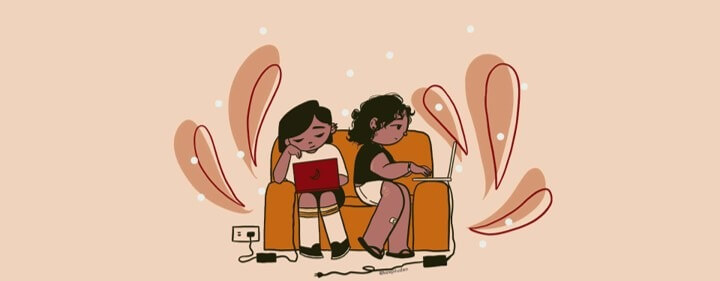
Political Science teaches its practitioners both the questions that political scientists ask in their attempt to understand politics and the manner of asking them. It develops independent and critical thinking on the application of concepts to current political events.
PSYCHOLOGY

Psychology introduces the student to the study of behavior and mental life, the investigation of the causes and dynamics of behavioral patterns and provides the students with knowledge, skills, and techniques for solutions of individual problems.
SOCIOLOGY
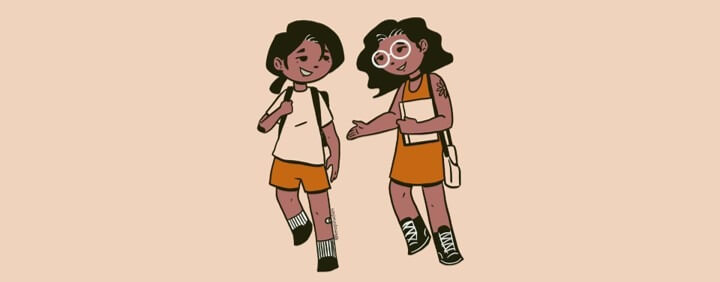
Sociology studies humans in various levels of group life, from the smallest dyad to the largest of social organizations. The discipline hinges on an intellectual tradition that continues to be shaped by attempts to understand order and change in society.
PROGRAM CHECKLISTS (Major-Minor Combinations)
PROGRAM STRUCTURE

General Education Courses (36u)
Social Science and Philosophy GE Courses (12u)
Arts and Humanities GE Courses (12u)
Natural Sciences and Mathematics GE Courses (12u)
Social Science Core Courses (19u)
Social Science 100. Historical Context of the Social Sciences (3u)
Social Science 101. Fundamental Statistics for the Social Sciences (4u)
Social Science 180. Epistemological Issues in the Social Sciences (3u)
Prerequisite: Senior Standing
Social Science 197. Ontology of the Social (3u)
Prerequisite: Junior Standing
Social Science 198. Special Topics (3u)
Prerequisite: Senior Standing, may be taken twice
Social Science 199. Seminar on Social Science Methodology (3u)
Prerequisite: Social Science 101 or Psychology 110
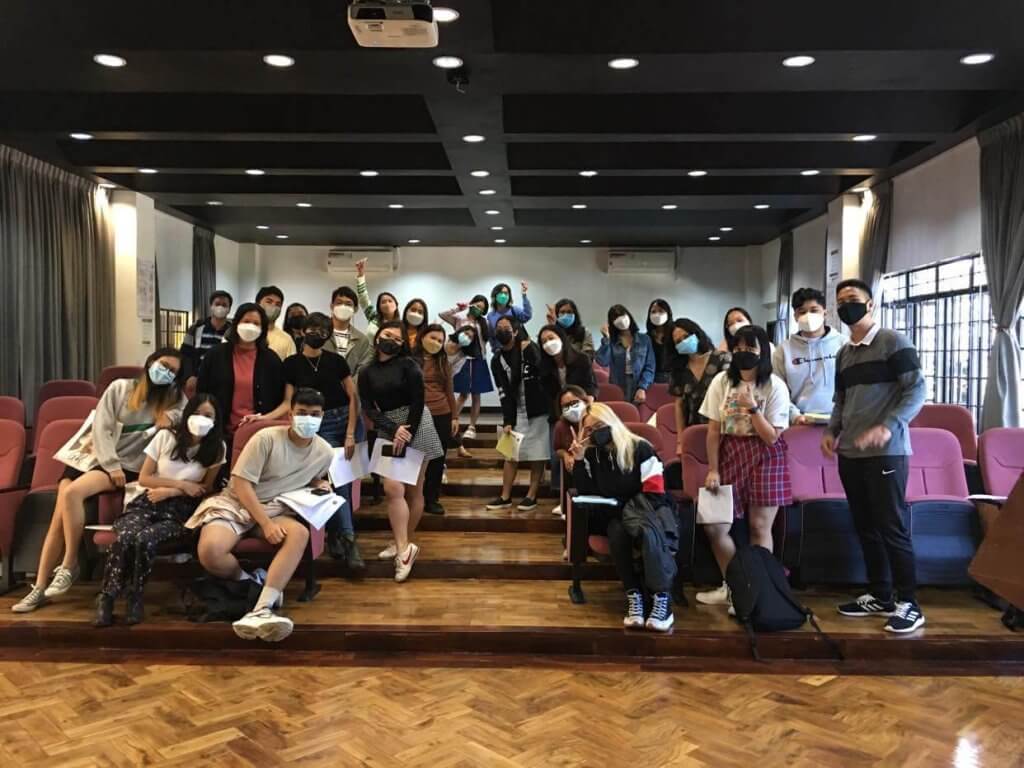
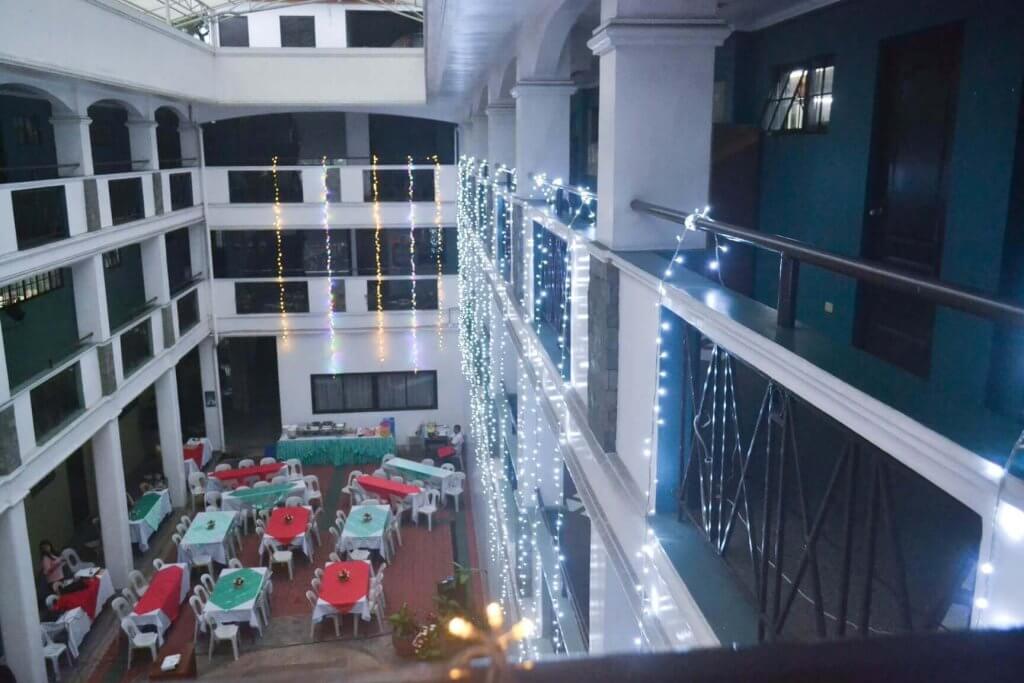
Other Required Courses (6-12u)
PI 100. The Life and Works of Rizal (3u)
Prerequisite: Junior Standing
Note: This course is required to all BASS Majors
Communication 11/Komunikasyon 11. Advanced College Writing / Sulating Pangkolehiyo: Pagsusuri at Pagsular (3u)
Note: This course is required to all BASS Majors
Mathematics 100. Introduction to Calculus (4u)
Prerequisite: Math 17 or Consent of Instructor (COI)
Note: This course is required for BASS Economics majors only.
Foreign Language 1.1 and 1.2. (3u)
Note: This course is required for BASS History majors only.
PE and NSTP Courses
Physical Education 1. Foundations of Physical Fitness (2u)
Physical Education 2. (3 events). Physical Education Activities (Beginners) (2u each)
NSTP 1. National Service Training Program (3u)
NSTP 2. National Service Training Program (3u)
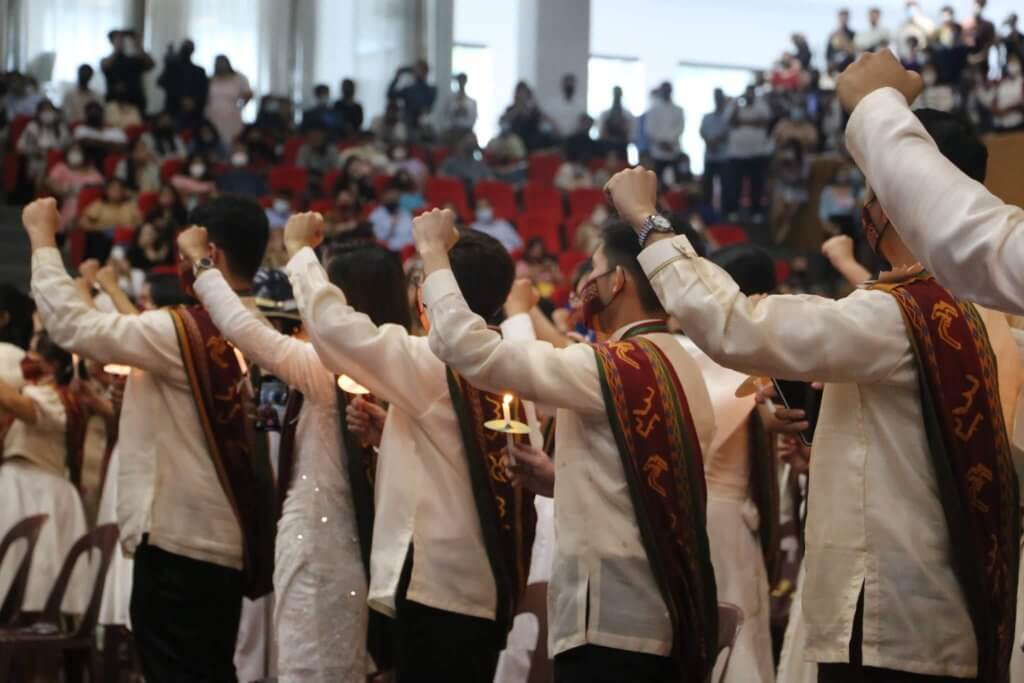
MAJOR CONCENTRATION: ANTHROPOLOGY (36u)
Anthropology 100. General Anthropology (3u)
Anthropology 104. Human Evolution (3u)
Prerequisite: Anthro 100
Anthropology 113. Introduction to Philippine Archaeology (3u)
Anthropology 119. Introduction to Museology (3u)
Anthropology 132. Introduction to Ecological Anthropology (3u)
Prerequisite: Anthro 100
Anthropology 170. Language and Culture (3u)
Anthropology 173. Introduction to Urban Anthropology (3u)
Anthropology 179. Culture Change and Applied Anthropology (3u)
Prerequisite: Senior Standing
Anthropology 192. Introduction to Anthropological Theory (3u)
Prerequisite: Anthro 100
Anthropology 199. Field Methods (3u)
Prerequisite: Anthro 192
Anthropology 200. Bachelor’s Thesis (3u)
Prerequisite: Soc Sci 199, Anthro 199, Senior Standing
Anthropology 133. Economic Anthropology (3u)
Anthropology 141. Introduction to Political Anthropology (3u)
Anthropology 151. Comparative Religion (3u)
Anthropology 161. Introduction to Folklore (3u)
Anthropology 181. Social Anthropology (3u)
Anthropology 182. Culture and Personality (3u)
Anthropology 198. Special Topics (3u)
MAJOR CONCENTRATION: ECONOMICS (36u)
Economics 101. Macroeconomics (4u)
Economics 102. Microeconomics (4u)
Economics 106. Elements of Mathematical Economics (3u)
Prerequisite: Econ 101, 102; Math 100
Economics 121. Monetary Economics (3u)
Prerequisite: Econ 101, 102
Economics 131. Introduction to Quantitative Economics (4u)
Prerequisite: Econ 101, 102; Math 100; Soc Sci 101
Economics 141. International Economics (3u)
Prerequisite: Econ 101, 102
Economics 151. Public Economics (3u)
Prerequisite: Econ 101, 102
Economics 191. Development Economics (3u)
Prerequisite: Econ 101, 102
Economics 200. Bachelor’s Thesis (3u)
Prerequisite: Senior Standing, and Soc Sci 199
Economics 109. History of Economic Thought (3u)
Prerequisite: Econ 101, 102
Economics 110. Methods of Economic History (3u)
Prerequisite: Econ 101, 102
Economics 116. The Economies of Asia (3u)
Prerequisite: Econ 101, 102
Economics 142. International Trade Policies (3u)
Prerequisite: Econ 141, or Consent of Instructor (COI)
Economics 152. Taxation and Fiscal Policy (3u)
Prerequisite: Econ 151, or Consent of Instructor (COI)
Economics 161. Industrial Organization (3u)
Prerequisite: Econ 101, 102
Economics 171. Economics of Agriculture (3u)
Prerequisite: Econ 101, 102
Economics 181. Labor Economics (3u)
Prerequisite: Econ 101, 102
Economics 189. Comparative Economic Systems (3u)
Prerequisite: Econ 101, 102
Economics 194. Economic Anthropology (3u)
Prerequisite: Econ 101, 102
Economics 195. Reading Course in Economics (3u)
Prerequisite: Econ 101, 102, may be taken twice
Economics 198. Special Topics in Economics (3u)
Prerequisite: Econ 101, 102, may be taken twice
MAJOR CONCENTRATION: HISTORY (39u)
History 100. Introduction to Ancient Civilizations (3u)
History 102. Modern Europe (3u)
History 112. Economic History of the Philippines (3u)
History 113. Political History of the Philippines (3u)
History 114. Cultural History of the Philippines (3u)
History 117. History of the Cordillera and Northern Luzon (3u)
History 119. History of Indigenous Peoples / Ethnic Minorities in Southeast Asia (3u)
History 151. History of East Asia (3u)
History 154. History of Southeast Asia (3u)
History 199. Historical Methodology (3u)
Historical 200. Bachelor’s Thesis (3u)
Prerequisite: Hist 199, Soc Sci 199, Senior Standing
History 106. History of Spain (3u)
History 110. Colonial Philippines I (3u)
History 115. Philippine Revolution (3u)
History 116. Philippine Nationalism (3u)
History 120. Directed Readings in Philippine History (3u)
History 140. The Philippines and the Third World (3u)
History 141. History of Latin America (3u)
History 168. History of the United States (3u)
History 198. Special Topics in History (3u)
Prerequisite: Senior Standing, may be taken twice
MINOR CONCENTRATION: PHILOSOPHY (27u)
Philosophy 11. Logic (3u)
Philosophy 110. Ancient Philosophy (3u)
Philosophy 111. Medieval Philosophy (3u)
Philosophy 112. Modern Philosophy (3u)
Philosophy 113. Contemporary Philosophy (3u)
Philosophy 130. Metaphysics (3u)
Philosophy 150. Epistemology (3u)
Philosophy 171. Ethics (3u)
Philosophy 125. Indian Philosophy (3u)
Philosophy 126. Chinese Philosophy (3u)
Philosophy 170. Philosophy of Man (3u)
Philosophy 177. Issues in Filipino Philosophy (3u)
Philosophy 194. Directed Readings in Philosophy (3u)
Prerequisite: Junior Standing, or Consent of Instructor (COI)
Philosophy 198. Special Problems (3u)
MINOR CONCENTRATION: POLITICAL SCIENCE (24u)
Political Science 100. Approaches to Understanding Political Phenomena (3u)
Political Science 150. Philippine National and Local Administration (3u)
Prerequisite: Pol Sci 100
Political Science 160. Society, Politics and Government (3u)
Prerequisite: Pol Sci 100
Political Science 178. Government and Politics in Southeast Asia (3u)
Prerequisite: Pol Sci 100
Political Science 182. International Politics (3u)
Prerequisite: Pol Sci 100
Political Science 192. Ancient and Medieval Political Theory (3u)
Prerequisite: Senior Standing
Political Science 151. The Philippine Executive (3u)
Prerequisite: Pol Sci 100
Political Science 152. Philippine Legislative System (3u)
Prerequisite: Pol Sci 100
Political Science 153. The Philippine Judicial System (3u)
Prerequisite: Pol Sci 100
Political Science 161. Political Parties and Interest Groups (3u)
Prerequisite: Pol Sci 100
Political Science 163. Political Behavior: Processes and Movements
Prerequisite: Pol Sci 160 or Consent of Instructor (COI)
Political Science 171. American Government and Politics (3u)
Prerequisite: Pol Sci 100
Political Science 172. Government and Politics of Selected European States (3u)
Prerequisite: Pol Sci 100
Political Science 177. Government and Politics of East Asia (3u)
Prerequisite: Pol Sci 100
Political Science 179. Government and Politics of South Asia (3u)
Prerequisite: Pol Sci 100
Political Science 183. International Organization (3u)
Prerequisite: Pol Sci 182
Political Science 185. Public International Law (3u)
Prerequisite: Pol Sci 182
Political Science 186. Private International Law (3u)
Prerequisite: Pol Sci 182
Political Science 190. Practicum (3u)
Prerequisite: Junior Standing
Political Science 193. Modern Political Theory (3u)
Prerequisite: Senior Standing
Political Science 194. American Political Theory (3u)
Prerequisite: Pol Sci 171, or Consent of Instructor (COI)
Political Science 197. Directed Study in Political Science (3u)
Prerequisite: Senior Standing
Political Science 198. Special Topics (3u)
Prerequisite: Senior Standing, may be taken twice
MINOR CONCENTRATION: PSYCHOLOGY (24u)
Psychology 101. General Psychology (3u)
Psychology 140. Behavior Analysis (3u)
Prerequisite: Psych 11 or Psych 101, or Consent of Instructor (COI)
Psychology 150. Personality (3u)
Prerequisite: Psych 11 or Psych 101, or Consent of Instructor (COI)
Psychology 155. Abnormal Behavior (3u)
Prerequisite: Psych 140 and 150, or Consent of Instructor (COI)
Psychology 180. Social Psychology (3u)
Prerequisite: Psych 150, or Consent of Instructor (COI)
Psychology 115. Experimental Psychology (5u)
Prerequisite: Soc Sci 101
Psychology 135. Perception (3u)
Prerequisite: Psych 11/101, 115 or Consent of Instructor (COI)
Psychology 145. Psychology of Language (3u)
Prerequisite: Psych 140 or Consent of Instructor
Psychology 160. Physiological Psychology (4u)
Prerequisite: Senior Standing
Psychology 162. Psychological Measurement (4u)
Prerequisite: Statistics Courses, Psych 115, 150 or Consent of Instructor (COI)
Psychology 163. Psychological Interview (3u)
Prerequisite: Psych 150 or Consent of Instructor (COI)
Psychology 171. Child Psychology (3u)
Prerequisite: Psych 150 or Consent of Instructor (COI)
Psychology 172. Adolescent Psychology (3u)
Prerequisite: Psych 150
Psychology 181. Special Topics in Group Dynamics (3u)
Psychology 182. Filipino Psychology (3u)
Prerequisite: Psych 150, Psych 180
Psychology 195. Special Topics in Psychology (3u)
Prerequisite: Senior Standing, may be taken twice
or any upper division course in the Social Sciences recommended by the discipline.
MINOR CONCENTRATION: SOCIOLOGY (24u)
Sociology 101. General Psychology (3u)
Sociology 114. The Philippine Social System (3u)
Prerequisite: Socio 101 or equivalent
Sociology 132. Sociology of Deviant Behavior (3u)
Prerequisite: Socio 101 or equivalent
Sociology 142. Sociology of Mass Communication (3u)
Prerequisite: Socio 101 or equivalent
Sociology 153. Sociology of Development (3u)
Prerequisite: Socio 101 or equivalent, Socio 195
Sociology 160. Society and Population (3u)
Prerequisite: Socio 101 or equivalent
Sociology 195. Sociological Theories (3u)
Prerequisite: Socio 101 or equivalent
Sociology 102. Social Organization (3u)
Prerequisite: Socio 101 or equivalent
Sociology 109. Comparative Social Structure (3u)
Prerequisite: Socio 101 or equivalent
Sociology 119. Industrial Sociology (3u)
Prerequisite: Socio 101 or equivalent
Sociology 125. Sociology of Religion (3u)
Prerequisite: Socio 101 or equivalent
Sociology 126. Urban Sociology (3u)
Prerequisite: Socio 101 or equivalent
Sociology 198. Special Topics in Sociology (3u)
Prerequisite: Socio 101 or equivalent
Sociology 199. Methods of Sociological Research (3u)
Prerequisite: Socio 195, Soc Sci 101
NEW GENERAL EDUCATION COURSES
Social Sciences and Philosophy Domain
Kasaysayan 1. Kasaysayan ng Pilipinas. Ang pampulitika, pang-ekonomiya, panlipunan, at pangkalinangan pagsulong ng Pilipinas. (3u)
Ethics 1. Ethics and Moral Reasoning in Everyday Life. The nature and development, sources and frameworks of ethics and moral reasoning and their application to various issues and contexts. (3u)
Self and Society 1. Understanding the self. This course is focused on understanding the self by examining the interaction of biological, psychological and socio-cultural dimensions and appreciating human agency and the emergence of the self in different social contexts. (3u)
Natural Sciences and Mathematics Domain
Science 10. Probing the Physical World. Understanding the origin of the universe, synthesis of the elements, formation of the earth and the various critical issues affecting our world view and our planet through the methods and interconnected concepts of the physical sciences. (3u)
Science 11. Living Systems: Concepts and Dynamics. Principles, interactions, and contemporary issues concerning living systems. (3u)
STS 1. Science, Technology and Society. Analyses of the past, present and future of science and technology in society (including their nature, scope, role and function) and the social, cultural, political, economic and environmental factors affecting the development of science and technology, with emphasis on the Philippine setting. (3u)
Arts and Humanities Domain
Arts I. Critical Perspectives in the Arts. A critical study of the experience, language, and the context of art. (3u)
Communications 11. Critical Perspectives in Communication. Theories and frameworks of communication in various contexts. (3u)
Wika 1. Wika, Kultura at Lipunan. Pagsusuri sa ugnayan ng wika, kultura at lipunan. (3u)
For inquiries, contact the College of Social Sciences:
css.upbaguio@up.edu.ph
College of Social Sciences Building
UP Drive, Governor Pack Road, Baguio City Benguet, Philippines, 2600
For matters concerning college registrations and enrollment, evaluations, completions, transfers, and others:
Office of the College Secretary
(074) 442-2427
css-ocs.upbaguio@up.edu.ph
College of Social Sciences Building
UP Drive, Governor Pack Road, Baguio City Benguet, Philippines, 2600



